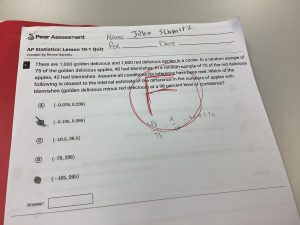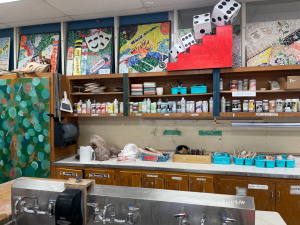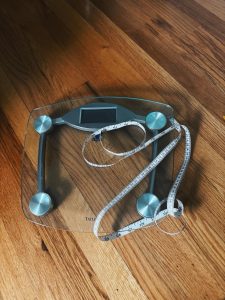Different Teachers Grade Differently
December 13, 2022
Ella walks into World Studies and receives a notification from PowerSchool. An F on her latest World Studies assignment but a B on her math assignment. She didn’t understand. She wants to understand how her teachers grade so she can adapt better to each of her classes.
Mr. Carell, a math teacher at NPHS, wants to make learning a fun experience.
“I have been teaching for seventeen years. Twelve in NPHS and five at another school,” he said.
Over the course of those years Carell’s grading styles have changed.
“I’ve modified some things slightly. I used to grade a lot more based on homework. And now I’m doing that a little less. And I’m giving more project based stuff now where kids can interact with each other and form groups and collaborate. So that’s really the main driver of the grades now. We still do quizzes and tests, but projects more now,” he said.
Mr. Klein teaches Social Studies and Psychology.
“This is my twenty third year teaching,” he said.
Klein said: “We’ve tried to incorporate less emphasis on completion and more on mastery, and also less emphasis on just tests and incorporating more performance based tasks.”
Klein is now focusing more towards grading accuracy instead of completion grades like some teachers do.
Both teachers have changed their methods and techniques of teaching throughout the years, but not by much.
To be precise, homework can be a bit different. Anything homework related is most likely graded for completion, as it usually represents a student practicing skills that will then be assessed in other ways.
Carell said: “Homework is graded for completion. Typically, I don’t grade the homework by accuracy, so we’ll go over them in class together to make sure everyone knows what they’re doing and what they got right or wrong on the homework and there’s always an answer key provided so they can check them themselves also. But typically, homework is graded for completion.”
Klein explained that his approach: “So, homework grades are based on both completion and accuracy. I want them to be completed relatively thoroughly, which will help drive the classroom discussion so that we can go over and clear up any misconceptions during class and add on to the students’ understanding, because when students talk about the material and reason through it, they have a better chance of retaining and understanding the material.”
Nonetheless, all teachers have their own way of grading. It serves a student well to find out what the differences are.

















